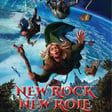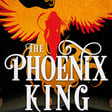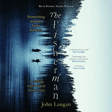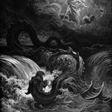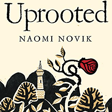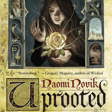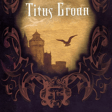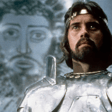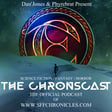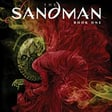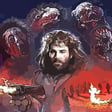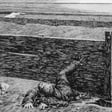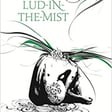
The Hitchhiker's Guide To The Galaxy with Richard Sparks
Hi!
Hi!
Hi there!
Wow.
Wow.
Wow!
This is beautiful.
This is so beautiful.... I might just buy it.
Dan and Brian are joined by - DON'T PANIC - the comedy writer Richard Sparks about Douglas Adams' seminal SF comic masterpiece, The Hitchhiker's Guide To The Galaxy. Hitchhiker's Guide has influenced the culture in innumerable ways, but no one really knew it was going to be such a smash hit.
Neither Adams nor Sparks, contemporaries in the late 1970s/early 1980s comedy scene in London, predicted how big the book would be. Richard talks to us about his experiences of working with Adams, how the book was born of the early alternative comedy scene, and why it still resonates today.
Richard Sparks is a comedy writer who cut his teeth on various TV shows, working for HTV (Wales) ITV (Southern and Central) and the BBC . He's written for the stage, both original plays and adaptations of Goldoni comedies), and done a lot of freelance script editing. He now lives in Los Angeles, and has recently turned his hand to MMORPGS and writing comic fantasy novels, beginning with his gaming-based series, New Rock, New Role.



